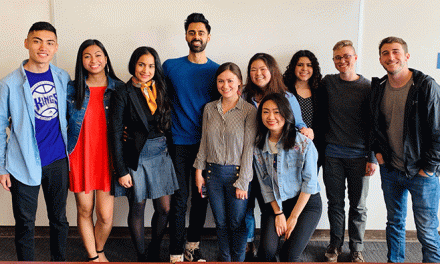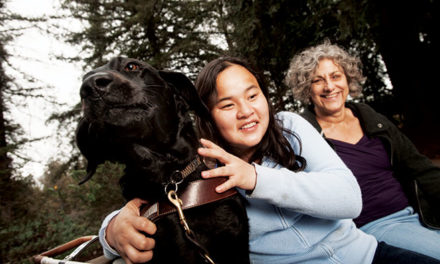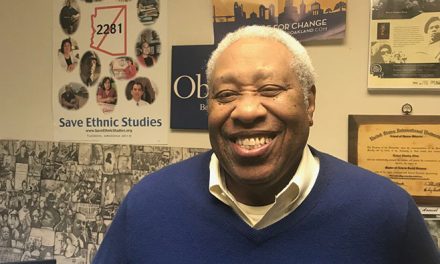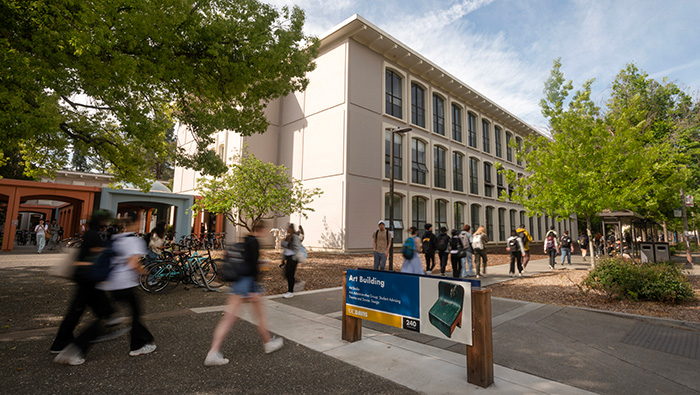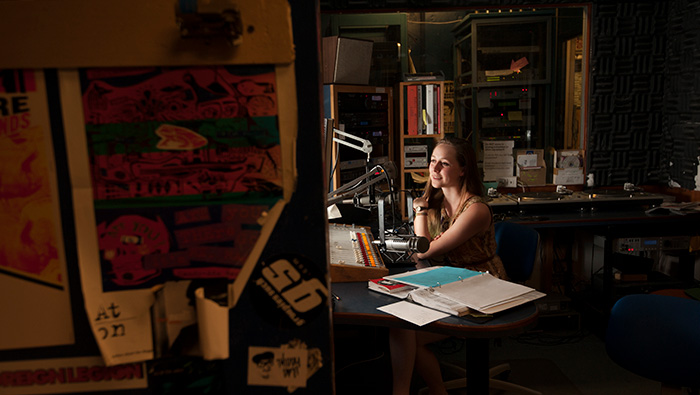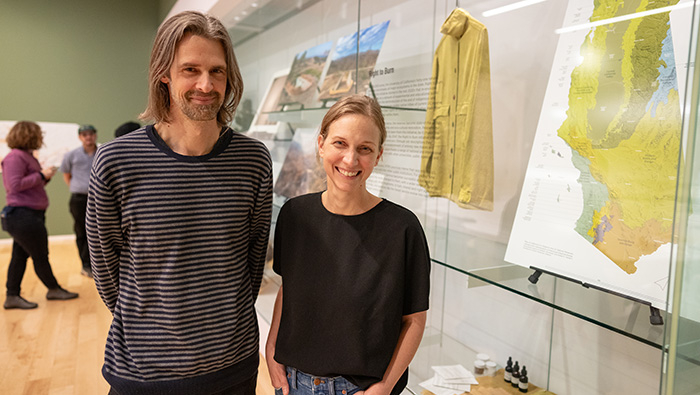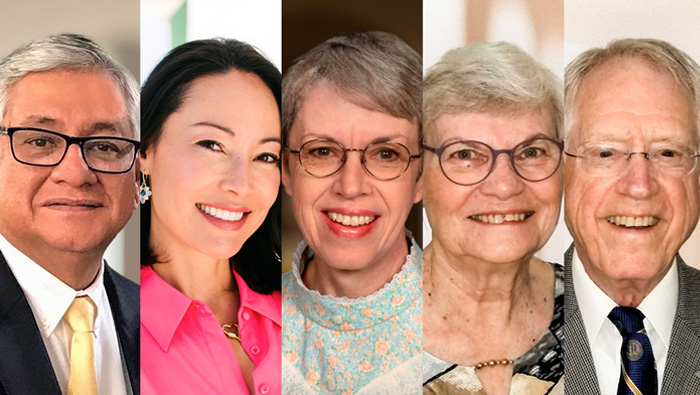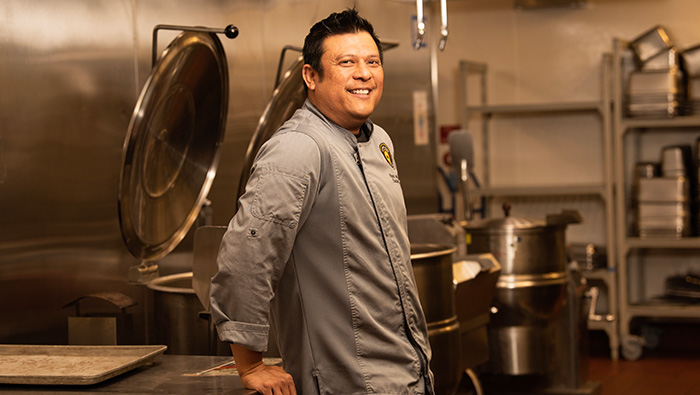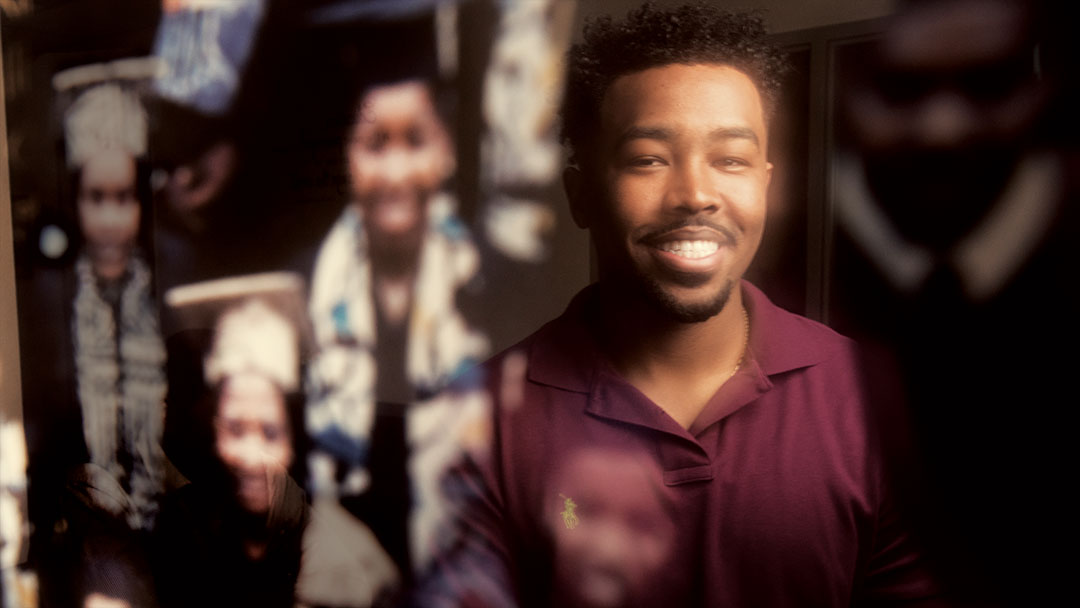
Brandon Coleman ’16 is preparing for medical school after graduation.
Photo: Gregory Urquiaga/UC Davis
New Programs Support Underserved Students
Brandon Coleman ’16 was the only one of his friends to go to college. And that first fall after he transferred to UC Davis, when he looked around his classes, he said, he felt alone—he didn’t see another African American.
But today, as the neurobiology, physiology and behavior major approaches graduation next month, he is thriving in an African American study group and a program helping disadvantaged students prepare for medical school.
Coleman, 23, is among the UC Davis students already benefiting from new and expanding campus initiatives to support the recruitment and academic success of historically underrepresented groups—African American, Chicano/Latino and Native American—and reduce the time necessary for all students to earn their degrees.
“It makes school that much easier when you have a community to study with,” said the Vallejo native.
Among major efforts to expand resources for historically underrepresented groups:
- The AB540 and Undocumented Student Center and the School of Law’s legal services center for undocumented students at seven UC campuses both opened in fall 2014 and have gained national recognition.
- The Center for African Diaspora Student Success, opened in fall 2015, is at the heart of a comprehensive set of initiatives for the recruitment and retention of African American students.
- A similar recruitment and retention plan is in the works for Chicano and Latino students, including a student center to open in fall 2016.
- The first director of Native American retention initiatives, who started in April, will help develop a plan for that population.
Adela de la Torre, vice chancellor for Student Affairs and Campus Diversity, said the programs help address the nation’s legacy of discrimination and racism that permeates all institutions, including K-12 and higher education. “We’re beginning to acknowledge that,” she said, “and this is no longer in the shadows.”
A range of factors can make gaining admittance to a university and completing a degree challenging for underrepresented students, including inadequate finances, feelings of isolation and family obligations.
Take African American students as an example. In fall 2015, just 980, or 3.9 percent, of 25,444 UC Davis undergraduates from the United States identified themselves as African American or black. And African American graduation rates are lower than those for all undergraduates (30 percent compared with 58 percent within four years, and 72 percent compared with 85 percent within six years).
Coleman found his help through the Center for African Diaspora Student Success in the South Silo. It facilitates services—including on-site tutoring, academic advising, mentoring and mental health counseling—and serves as a community gathering place.
“I’ve been able to network with a lot of other African American science students,” he said.
Also, Kayton Carter, the campus’s first director of strategic African American retention initiatives, became a mentor. “I think of him as a resource, a mentor for advice,” Coleman said. “I don’t think I would have made those connections if it hadn’t been for the center.”

